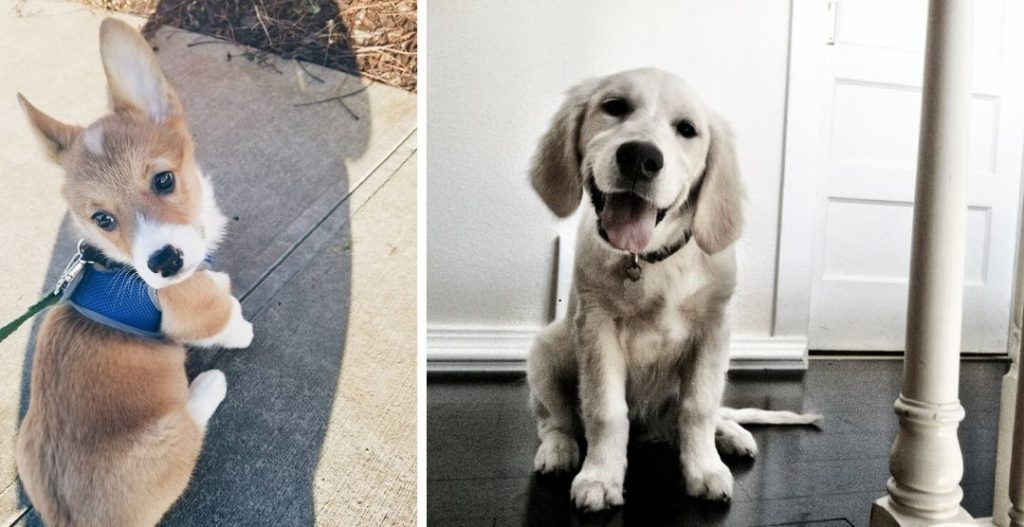
It happened. You finally did it. You finally got the present you’ve always dreamed of finding in that wriggling, loosely-wrapped box beneath your tree. Congratulations on your new puppy! You’ll quickly learn that there’s nothing quite like unconditional dog love — and acting as a lifelong companion for your growing pup fosters a bond that will make you feel special each and every day.
But, in the paraphrased words of Spiderman’s Uncle Ben: with great cuteness, comes great responsibility. And your new puppy is no exception! Bringing home a puppy requires a little bit of preparation and a lot of patience … and Strut the Pup can help with all things puppy care and training.
With that in mind, check out our tips for taking care of your new lifelong friend, including a complete checklist of puppy essentials!
New Puppy Checklist – Strut the Pup
- Crate & Bed
- Collar & Tags
- Harness & Leash
- Puppy Food & Bowls
- Toys
- Poop Bags
- Treats
- Carpet Cleaner
- Grooming Supplies
- Insurance
New Puppy Essentials
There’s definitely some prep work involved with bringing home a new puppy. A puppy’s first couple days in a new home can be a scary time for them — it’s the first time they’ll be away from their siblings, smelling new smells and interacting with new people. It’s important to do your best to make them feel comfortable during this transition!
Here’s our detailed list of new puppy essentials that will have your littlest family member feeling at home in no time:
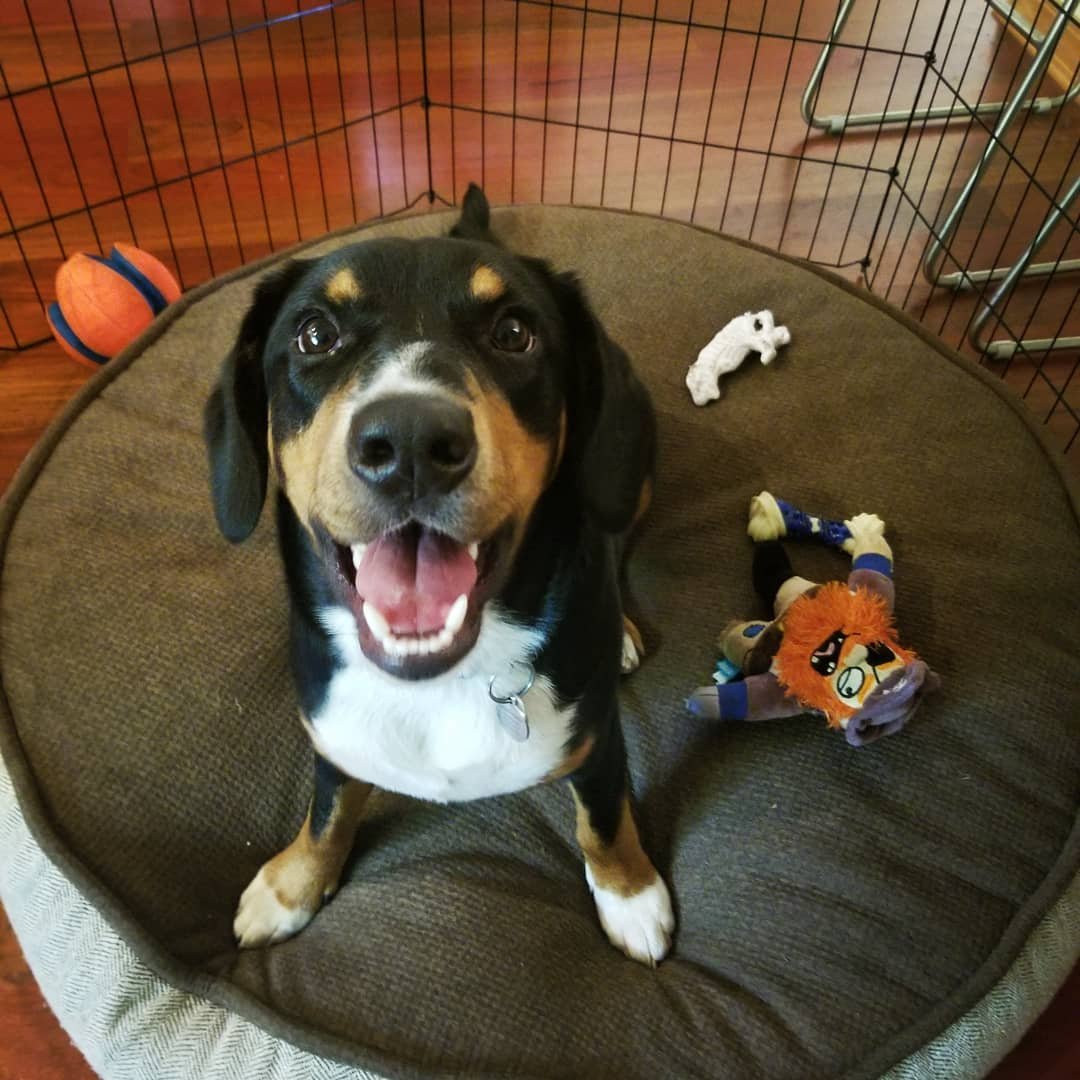
Crate & Bed
Crates are not just a place for your dog to sleep; they’re also invaluable training tools when properly utilized. An appropriately-sized crate offers your new puppy a safe, secure den to rest, and offers you the opportunity to introduce new, fun things one-by-one in a place they feel comfortable, ensuring your pup isn’t overwhelmed. Add in a bed and your new puppy is sure to love it!
It’s completely normal for your new puppy to cry through the first couple nights — but it’s important to keep them in their crate, rather than rushing to console them. That way, they learn that their crate is a safe place to sleep.
If you choose to crate-train your puppy, never punish them in the crate. It’s all about positive reinforcement so they eventually choose to sleep in the crate on their own.
Collar & Tags
A collar is as much a necessity as it is an opportunity to accessorize. Puppies are naturally curious and easily distracted; you’ll want to make sure your dog can be identified and returned to you if they happen to run off. Be sure to grab a reflective and adjustable collar so it is both easily seen and can be sized up as your pup grows!
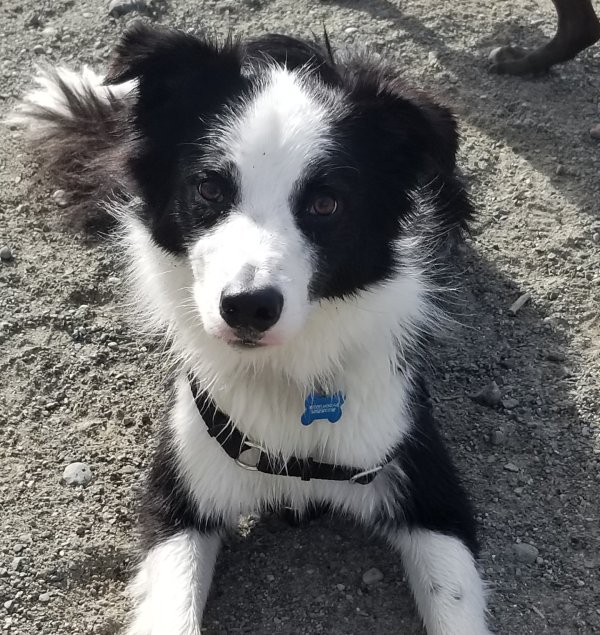
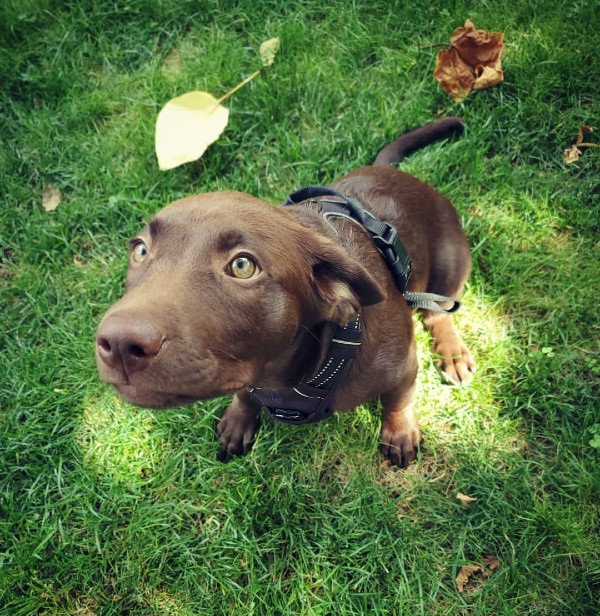
Harness & Leash
The harness and leash you choose really depends on the breed of your puppy; especially for smaller dogs or puppies that pull, harnesses are a must. As for leashes, be sure to find something durable enough to withstand sharp little puppy teeth.
Puppy Food & Bowls
Puppies need twice as many calories as adult dogs — and higher levels of fat, protein, phosphorus, and calcium, too. To make sure your puppy is properly nourished, it’s important to choose the high-quality food formulated not just for puppies, but for your puppy’s specific size and breed.
When it comes to food and water bowls, it’s smart to choose bowls made of dishwasher-safe materials like stainless steel or ceramic so they are easily cleaned; non-slip bottoms also limit messes as your dog is lappin’ it all up!
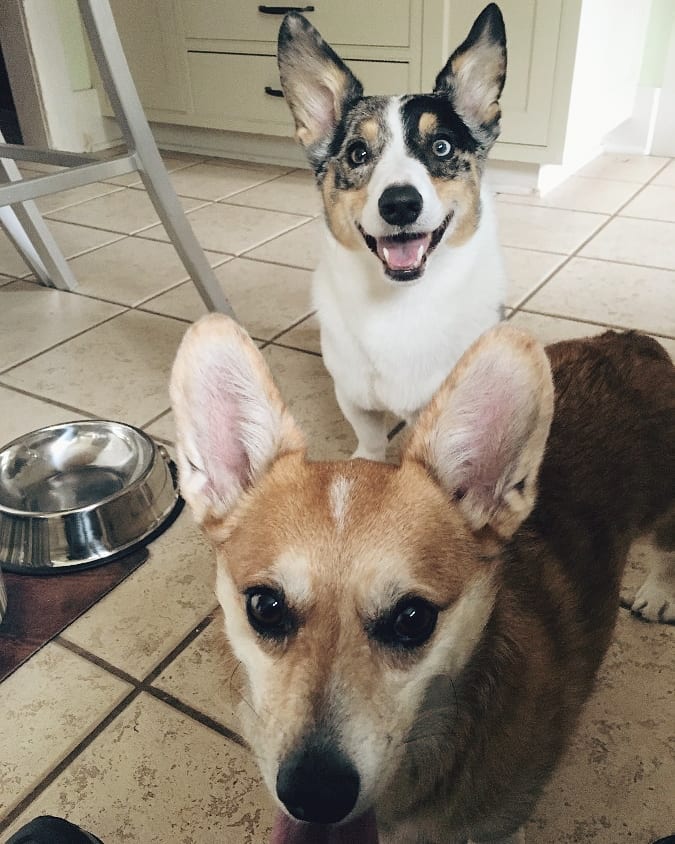
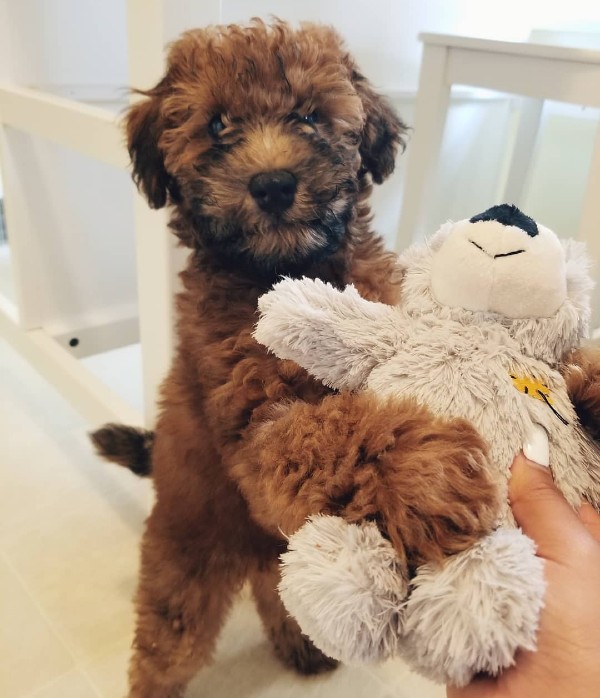
Toys
Both comfort toys and chew toys will be important for your pup to stay entertained and comfortable — puppies need an outlet for all that energy! Plush comfort toys can soothe a puppy for the first couple nights (some even give off heat or simulate heartbeats!), while puppy-sized chew toys are a great way to keep pups occupied … and not chewing on your belongings instead. Toys also stimulate a puppy’s growing mind, which — like a human baby — learns at a much quicker pace.
Poop Bags
Less for the sake of your puppy and more for the sake of the environment, consider investing in compostable doggie bags for easy disposal that limits waste. Picking up after your dog also helps prevent the spread of doggie disease and illness.
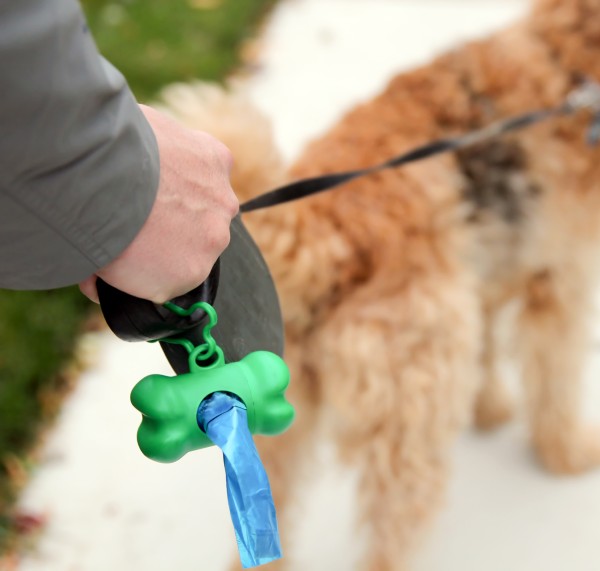
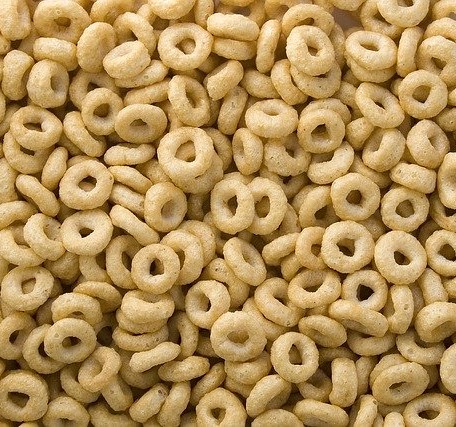
Treats
Doling out low-calorie, bite-sized treats to reinforce positive behavior is one of our favorite ways of training a puppy, especially those easily motivated by food. These treats can be little bites specifically formulated for dogs or puppies, or they can be everyday foods you probably already have in your pantry, like Cheerios, fruits, or vegetables. For both training treats and normal puppy treats, don’t forget to do your research to ensure they’re the healthiest choice for your pup!
Carpet Cleaner
Puppies, unfortunately, don’t come potty-trained. The occasional mess is unavoidable, so it’s good to have enzymatic cleaners around the house for when your new puppy doesn’t quite make it outside. Enzyme cleansers break down stains and smells to deep-clean accident areas; this is especially important as pets are creatures of habit, which means they’ll likely return to the same spot for future accidents if they smell something familiar there.
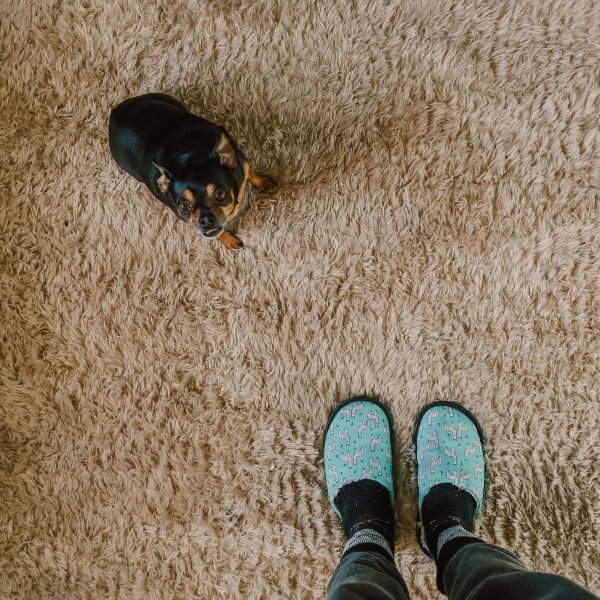
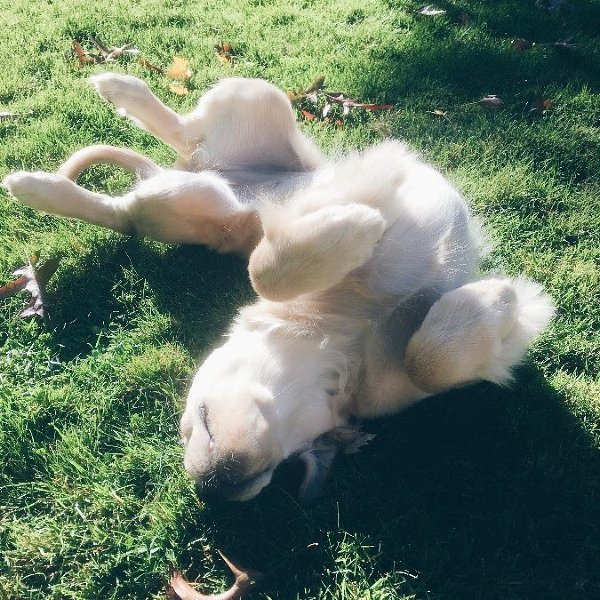
Grooming Supplies
You likely won’t need these in the first 48 hours of puppy parenthood, but it’s always good to think ahead — especially when it comes to your puppy’s hygiene and comfort. Shampoo, brushes, nail trimmers, toothbrushes … all basic hygiene must-haves that it’s never too early to start getting used to! Be sure to check in your veterinarian or groomer before grooming.
Pet Insurance
Last on our checklist, but certainly not least, is something often overlooked by pet owners: good pet insurance. Bringing a new puppy into your home means welcoming a new family member, and you want to make sure this new family member is well-insured just like any other. Part of having a lifelong companion is ensuring your companion is around for a full lifetime. You never know what might happen!
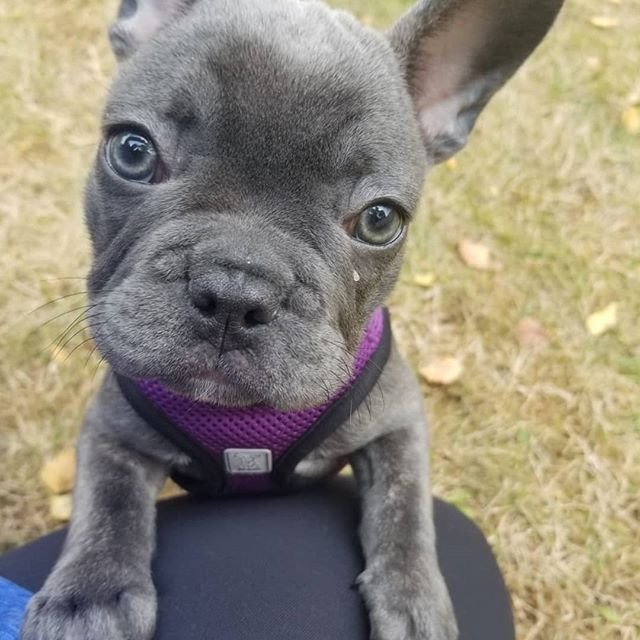
Puppy Care & Training
There’s a lot that goes into raising a puppy and, of course, it doesn’t stop once you checked all the boxes on our list of essentials. We recommend starting puppy training when the puppy is around 8 weeks old — it’s amazing what young pups can learn so early in their lives. Socialization with other dogs early on is also important for your growing pup, supporting their confidence with other dogs and people alike.
For more information on puppy care and training, contact Strut the Pup by filling out the form below!
